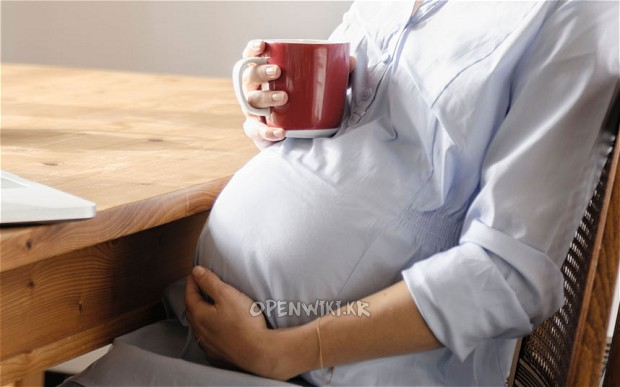문서의 이전 판입니다!
이 문서는 의학지식을 포함하고 있습니다. 의학은 빠르게 변화하는 학문으로 아래의 내용은 최신의 정보가 아닐 수 있으며, 따라서 글을 읽는 시점에는 정확한 내용이 아닐 수 있습니다. 이 내용에 따라 스스로 질병을 진단하거나 치료하려 하지 마십시오. 질병의 정확한 진단과 치료를 위해서는 의사의 진료가 필수적입니다. 이 내용은 의학적 상식을 넓히기 위한 용도로 사용하십시오.
임신과 커피
미 FDA에서는 하루 3잔이하(하루 총 카페인 300mg이하)를 권장한다. 카페인의 농도에 따라 하루 1-2잔 정도로 제한하는 것이 안전하다.
- 5잔 이상 마시면 유산이 증가한다는 보고가 있다. 1)
- 많이 섭취할 수록 유산, 사산이 증가한다는 보고가 있다. 2)
- 하루 4잔을 넘으면 합병증이 증가한다는 보고가 있다.3)
- 하루에 섭취하는 카페인의 양이 200mg을 넘으면, 유산확률이 두 배 (25%)로 증가한다는 보고가 있다. 4)
| 커피 | 양(oz) | 카페인의 양(mg) | 농도 |
| Coffee (Brewed) | 8 | 108 | 13.4 |
| Coffee (Decaf, Brewed) | 8 | 6 | 0.7 |
| Coffee (Decaf, Instant) | 8 | 3 | 0.3 |
| Coffee (Drip) | 8 | 145 | 18.1 |
| Coffee (Espresso) | 1.5 | 77 | 51.3 |
| Coffee (Instant) | 8 | 57 | 7.1 |
더치 커피
2013년 한국식품연구원 연구팀이 커피 추출 시간에 따른 카페인 함량을 분석한 결과, 커피를 추출한 처음 3시간 동안 카페인이 가장 많이 나왔고, 이후 9시간까지 지속적으로 카페인이 추출됐다. 시중에 유통되는 더치커피 30개 제품과 커피전문점 아메리카노를 비교한 결과, 더치커피의 카페인 함량이 4배 이상이라는 조사결과도 있다(2016년 한국소비자원).
출처 : http://health.chosun.com/site/data/html_dir/2016/11/09/2016110900004.html
카페인 중독
카페인 중독 증상은 카페인 섭취량보단 개인이 가진 카페인 내성 정도와 관련이 높다. 미국정신의학회에선 육체적·정신적 질환이 없고 최근까지 하루 카페인 섭취량이 250mg(커피 2~3잔) 이상이면서 12가지 중 5가지 이상의 증상이 있다면 카페인 중독을 의심해야 한다고 정의한다.
체크 항목은 다음과 같다. ▲안절부절못함 ▲신경질적이거나 예민 ▲흥분 ▲불면 ▲얼굴홍조 ▲잦은 소변 혹은 소변량 과다 ▲소화불량 등의 위장장애 ▲두서없는 사고와 언어 ▲근육경련 ▲주의산만 ▲지칠 줄 모름 ▲맥박이 빨라지거나 불규칙함 등이다.
모유수유 중 커피 먹어도 되나요?
모유수유 중인 수유부에게 하루 카페인 섭취량은 200mg~300mg미만으로 드시길 권유함. 카페인은 아기에게 약 1%정도 전달이 된다. 다양한 커피 종류에 함유량도 각기 다르므로 커피 함유량을 확인하고 가능한 낮은 농도의 커피를 권유함. 일반커피 카페인 함유량이 47~120mg 정도로 하루 1~2잔 정도의 커피는 안전함. 그래도 가급적 아기에게 전달되는 영향을 최소화하기 위해서는 수유 후 바로 드시고 다음 수유 때까지 시간을 조금 두시는 것이 좋다.

